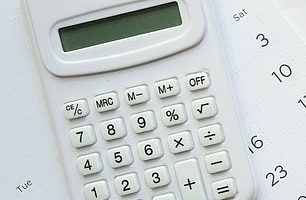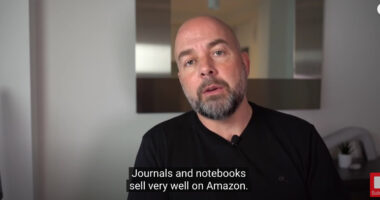WE all need to make sure we pay our taxes – but there are ways to earn up to £30,000 extra a year without giving a penny to the taxman.
By making money from hobbies or renting out a driveway, you can reduce your tax burden and keep more of your hard-earned cash.
Most of these ways offer an allowance you can take advantage of each year.
The current tax year is set to end next month on April 5, so it’s best to make the most of them now before you lose this year’s allowances for good.
It comes as Chancellor Rishi Sunak announced freezes to the income tax thresholds in the Budget, hitting millions of hard-working Brits.
Sarah Coles, personal finance analyst at Hargreaves Lansdown, said: “Frozen tax allowances and thresholds mean a bleak few years for taxpayers, but you don’t necessarily have to live with higher tax bills, because there are still ways to fire up a tax free income.
“Taking full advantage could mean you can take an income of £30,000 without paying a penny in tax.”
Below we round up Sara Coles’ seven top tips on how to earn a tax-free income.
Personal allowance – £12,500 a year
The personal allowance is the amount you can earn tax-free each year.
In the current tax year running from April 6, 2020, to April 5, 2021, that amount is £12,500.
It’s set to rise from April 2021 but will then stay at that rate until April 2026.
For basic rate taxpayers, the threshold will be held at £12,570 and £50,270 for higher rate tax payers.
Basic rate tax payers pay 20% on earnings over the lower threshold, while higher rate payers are charged 40% above the top threshold.
If you earn £12,500 or less, you currently pay no income tax.
While Brits who earn over £125,000 a year don’t get any tax-free personal allowance – they will pay income tax on everything they earn.
Rent out a room – £7,500 a year
If you rent out a furnished room of your home through the government’s Rent a Room Scheme, the first £7,500 of rent each year is tax-free.
However, this is halved if you share the income with your partner or someone else.
The tax exemption is automatic if you earn less than £7,500, meaning you don’t need to do anything.
If you earn more than this you must complete a self-assessment tax return.
You can then opt into the scheme and claim your tax-free allowance.
Rent out a driveway – £1,000 a year
Another way to make tax-free income from your home is by renting out storage space or a driveway.
This will let you earn up to £1,000 a year without paying any tax.
Depending on where you live, you could net up to £200 a month by renting out your driveway to motorists.
Of course, this may not be suitable now during coronavirus lockdown but it could be worth looking into once restrictions are eased.
You can use the price guide tool by Park Let to get an idea of how much your parking space or garage is worth.
Make cash from a hobby – £1,000 a year
If you have a hobby side business, outside of a regular job, you can earn up to £1,000 without paying tax thanks to the trading allowance.
The hobby could be gardening or babysitting, just to mention two examples.
The trading allowance is available even if you have only traded for part of the tax year.
For example, if you started to trade in February 2021, you would still be able to claim the full amount of the trading allowance before April 5, 2021.
If you earn more than £1,000 a year, you need to complete a self-assessment tax return.
Earn savings interest – £1,000 a year
In April 2016, the government introduced a big shake-up to something called the Personal Savings Allowance (PSA).
Under the scheme, basic rate taxpayers can earn £1,000 in interest a year tax-free – in whatever account they’re saving in.
While if you’re a higher-rate taxpayer you earn up to £500 tax-free.
At the time, the government estimated the change meant that around 95% of adults no longer pay any tax on their savings.
Alternatively, savings kept in an Isa will continue to earn interest tax-free until the money is withdrawn from the account.
The maximum amount you can put away for the 2020/21 tax year in an Isa is £20,000.
Get the starting savings rate – £5,000 a year
The starting rate for savings is a special 0% rate of income tax for households on the lowest incomes.
The starting rate for savings is currently £5,000 per tax year, meaning you don’t pay any interest on amounts below this.
The starting rate for savings is reduced by £1 for every £1 you earn over the personal allowance.
However, if you’re claiming the Blind Person’s Allowance, you can earn up to £17,500 a year and still be eligible for the starting rate for savings.
Earn dividend income – £2,000 a year
Savers can earn dividend income of up to £2,000 a year without paying tax.
You may get a dividend payment if you own shares in a company.
How much tax you pay on dividends above the dividend allowance depends on your earnings.
Basic-rate taxpayers pay 7.5% above the allowance, compared to 32.5% for higher rate payers and 38.1% for those on the additional rate.
If you earn up to £10,000 in dividend income a year, you need to ask HMRC to change your tax code to deduct tax from your wages.
Alternatively, you can fill in a self-assessment tax return.
We explain how the income tax threshold freeze will affect your wages and take home pay.
Meanwhile, thousands of parents will lose some or all of their child benefit payments under a stealth tax.
It’s important to check your tax code is correct as it could save you money.
















